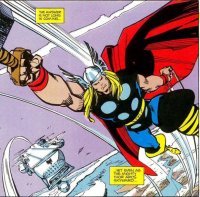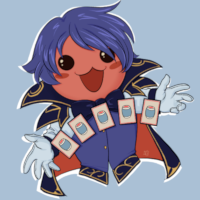- Posts: 1369
- Thank you received: 1275
Bugs: Recent Topics Paging, Uploading Images & Preview (11 Dec 2020)
Recent Topics paging, uploading images and preview bugs require a patch which has not yet been released.
Themes in Games
Barnes and I appear to be on exactly the same page. The setting (artwork, location, back story) of a game is NOT the same thing as the theme.
VonTush claimed that games cannot have a theme, like books or movies, because they are dynamic rather than static. I disagree. The rules are static. They may not produce exactly the same situation every game, but they have the same potential every time.
Please Log in or Create an account to join the conversation.
Let's look at some of the very thematic material here:
- T&E is about the four principle elements that comprise successful civilizations- government, religion, resources and trade. A civilization is only as successful as its weakest element.
- As civilizations develop these things, they grow and expand, increasing geographic territory which eventually leads to conflict with neighboring civilizations. This does not necessarily mean battle- it could mean competition in the marketplace or exchange of religious ideas.
- Conflicts emerging from outside of the civilization must be won by supplying resources of the corresponding element, whereas internal conflicts (changes in leaders) must be won by the religious instituition, representing ideological support for changes in leadership.
- When a civilization is able to consolidate the strength of an element, it is able to produce a monument/wonder that continues to increase the value of a civilization over time.
This is all deeply THEMATIC stuff, things that the game is ABOUT. And it's a lot more thematic than flipping a card that shows a monster on it and rolling dice at it.
This is a quote from Barnes in the other thread.
Here's a follow-up question - if none of this stuff was intended, say, T and E was originally a game with no setting and just mechanics and later received its theme before publication, is the theme still there?
Is there still theme if it was objectively not intended?
Please Log in or Create an account to join the conversation.
- Black Barney
-

- Offline
- D20
-

- 10k Club
- Posts: 10045
- Thank you received: 3553
The theme of this discussion is not unlike taking Ambien.
Please Log in or Create an account to join the conversation.
Gregarius wrote: VonTush claimed that games cannot have a theme, like books or movies, because they are dynamic rather than static. I disagree. The rules are static. They may not produce exactly the same situation every game, but they have the same potential every time.
So, you're saying that the author is the source of the theme - Based on potential.
When means the question that charlest asks would have to be no that there wouldn't be theme unless the author intended it. Correct?
Please Log in or Create an account to join the conversation.
Actually, I was saying that the rules were the source of the theme. That's not the same as the author. I believe it is entirely possible that an author could be trying to make a game about the benefits of capitalism, but end up with a game about the corrupting influence of greed.VonTush wrote:
Gregarius wrote: VonTush claimed that games cannot have a theme, like books or movies, because they are dynamic rather than static. I disagree. The rules are static. They may not produce exactly the same situation every game, but they have the same potential every time.
So, you're saying that the author is the source of the theme - Based on potential.
When means the question that charlest asks would have to be no that there wouldn't be theme unless the author intended it. Correct?
So, no, author intent is not the sole source of theme.
Please Log in or Create an account to join the conversation.
Please Log in or Create an account to join the conversation.
- Michael Barnes
-

- Offline
- Mountebank
-

- HYPOCRITE
- Posts: 16929
- Thank you received: 10375
Let's look at that closely because I think that does bear discussion. We've seen where games- especially many of those mid-tier Knizia games- get rethemed for reprints, licenses and so forth. The Beowulf movie game (Auf Heller und Pfennig/Kingdoms) is a good example. Knizia obviously did not intend for the game to have Beowulf and Grendel in it, nor did he intend for it to have any kind of thematic connection to the story. It had a medieval kingdoms setting, and its theme was really increasing and decreasing the value of property.
But hang on...there is a theme, isn't there? Doesn't Beowulf effectively devalue Hrothgar's hall? But the presence of heroes and treasures increases it. So really, the THEME has stayed the same. It's the setting, visual motifs, nomenclature and context that has changed.
I think you could totally pallette swap T&E to be a game about business...it's already pretty indebted to Acquire as it is. You could take the principles of theme I outlined above and change some nomenclature around to be about four pillars of successfully running a fast food franchise, marketplace competition, acqusition and so forth.
So is the THEME really the rise of early civilizations or is it more about those deeper governing factors like the process of growth, conflict and resolution?
It could very well be that Knizia sat down and came up with the mechanics and then applied the setting and nomenclature...be that as it may, from an authorial perspective, he is still generating the thematic material. The man is a mathematician, and really the game kind of looks like how a mathematician would describe the rise and fall of civilizations. It is totally an abstraction, but all games are. Even Warhammer 40k, despite the layer upon layer of setting, visual motif, flavor text and other crusts.
I do think there are true abstracts- Twixt, Blokus and GIPF for example. Games where the only THEME is a motion such as jumping, sliding, placement or capture. But even there, you could argue that the theme is the action you are doing.
And FWIW, the other GIPF project games have themes if you follow on with this way of looking at theme as the "deep hidden meaning" layer and not the "cool illustrations on cards" layer...TAMSK is about time. DVONN is about shifting sand. ZERTZ is about ice floes. YINSH is about wind. PUNCT is about...I dunno, something.
Please Log in or Create an account to join the conversation.
You've taken something that has had meaning, as rough as it may have been, and made it meaningless.
Please Log in or Create an account to join the conversation.
- san il defanso
-

- Offline
- D10
-

- ENDUT! HOCH HECH!
- Posts: 4623
- Thank you received: 3560
Having said that, if we're talking about games as art (which is a completely different discussion) then yes, even an abstract game has a theme. The GIPF games are a good example of that. If an abstract work of art can express a theme, then why not an abstract game?
But I can't help but think that games =/= visual art. The word we're using ("theme") is the same word, but it's acceptable and even necessary that they have different meanings to reflect the fact that we're working different mediums. I feel like we're trying to grab at the definition of theme as used in different mediums to lend board gaming some air of credibility, and that's barking up the wrong tree. It's apples and oranges really.
Please Log in or Create an account to join the conversation.
I thought that the early discussions about ameritrash at BGG really clarified the differences between ameritrash, eurogames, and war games. Eurogames emphasize a smooth, efficient process. War games strive for detailed simulations, usually of historical conflicts. Ameritrash games focus on drama.
What really sets eurogames apart from other games is that theme is often added in late during the design process. In ameritrash and war games, it appears that the design starts with theme (and setting). This leads to different results. Wargames and ameritrash games often deliver setting (which most are happy to call theme) quite effectively, because the design starts with setting and sometimes requires distinctive mechanics to deliver the setting. Eurogames treat setting as more of an afterthought, so they end up more samey, recycling the same mechanics over and over again (auctions, set collections, vp tracks, etc).
Wargames and ameritrash also return to their own favorite mechanics often enough, but the focus on simulation (wargames) or drama (ameritrash) offers a stronger sense of narrative, transcending mere mechanics to provide a richer experience. Aside from a brief discussion comparing efficiency of strategy, there is little to talk about after a eurogame. But a memorable turn of events in a wargame or ameritrash game can make for a tale worth telling afterwards. Euros, through efficiency, often suppress the chance of anything interesting happening.
Please Log in or Create an account to join the conversation.
Gregarius wrote:
Actually, I was saying that the rules were the source of the theme. That's not the same as the author. I believe it is entirely possible that an author could be trying to make a game about the benefits of capitalism, but end up with a game about the corrupting influence of greed.VonTush wrote:
Gregarius wrote: VonTush claimed that games cannot have a theme, like books or movies, because they are dynamic rather than static. I disagree. The rules are static. They may not produce exactly the same situation every game, but they have the same potential every time.
So, you're saying that the author is the source of the theme - Based on potential.
When means the question that charlest asks would have to be no that there wouldn't be theme unless the author intended it. Correct?
So, no, author intent is not the sole source of theme.
So if the theme could have been slapped on later or even be completely accidental without the designer/publisher realizing it...how is theme in this sense useful to us? What do we do with that? Isn't it meaningless? Is a message worth deciphering and studying if it could have been scrawled randomly?
Please Log in or Create an account to join the conversation.
- Erik Twice
-

- Offline
- D8
-

- Needs explosions
- Posts: 2300
- Thank you received: 2650
Well, however it might have gotten there, it's there so you can't ignore it. Rocket jumping is a part of Quake, even if the designers didn't intend for it to happen and Ten Acres of Snow is broken even if Martin Wallace insists it isn't. Both seem important things to know about the games to me and worth deciphering and studying even if they weren't intended.charlest wrote: So if the theme could have been slapped on later or even be completely accidental without the designer/publisher realizing it...how is theme in this sense useful to us? What do we do with that? Isn't it meaningless? Is a message worth deciphering and studying if it could have been scrawled randomly?
This is how I see it too.Shellhead wrote: For most gamers, the theme of the Battlestar Galactic game is... wait for it... Battlestar Galactica. For Barnes (and others), the theme of Battlestar Galactica is perhaps paranoia.
Please Log in or Create an account to join the conversation.
- Michael Barnes
-

- Offline
- Mountebank
-

- HYPOCRITE
- Posts: 16929
- Thank you received: 10375
Think about this from another angle. What is Moby Dick "about"? Is it about Ahab and the white whale, or is it about obsession? The theme is obsession, not whaling ships, harpoons and sailors. Is Raiders of the Lost Ark's theme Indiana Jones, bullwhips, Karen Allen and the Lost Ark? Or is it really about reclaiming Judaica from both Nazis and the Middle East, Reagan-era imperialism and referencing serial adventures? The way we talk about theme in board games, it's all of the STORY material, the SETTING and the PLAYERS, that are the "theme". Not the actual meaning or subtext.
I think you may be correct that we can not necessarily apply or transpose the meaning of theme as it is understood in another medium to games, which is why this is a difficult issue to really corner into something approaching consistency and clarity.
But I don't think that undermines what I'm trying to get to...that some games can be "about" something other than what you do and what is shown on the table. That those things can illustrate actual "literary" (for lack of a better term) meaning. Labyrinth and War on Terror had very specific political messages and in the latter's case it was rife with very direct, participatory satire. Mall of Horror isn't really "about" zombies, it's about how selfish and crappy people can be to each other in times of crisis. Greed Incorporated isn't about making money and spending it on things- it's about irresponsible capitalism and the lack of accountability at the highest levels of corporate business.
Maybe the division is really between theme and subject matter.
Please Log in or Create an account to join the conversation.
- Michael Barnes
-

- Offline
- Mountebank
-

- HYPOCRITE
- Posts: 16929
- Thank you received: 10375
Shellhead wrote: For most gamers, the theme of the Battlestar Galactic game is... wait for it... Battlestar Galactica. For Barnes (and others), the theme of Battlestar Galactica is perhaps paranoia.
This is EXACTLY what I am getting at with all of this.
Please Log in or Create an account to join the conversation.
- san il defanso
-

- Offline
- D10
-

- ENDUT! HOCH HECH!
- Posts: 4623
- Thank you received: 3560
Maybe the division is really between theme and subject matter.
I think you're right about this. We're running into issues because the word "theme" is broadly understood in board gaming to refer to both things.
Please Log in or Create an account to join the conversation.
 Games
Games














 How to resolve AdBlock issue?
How to resolve AdBlock issue?